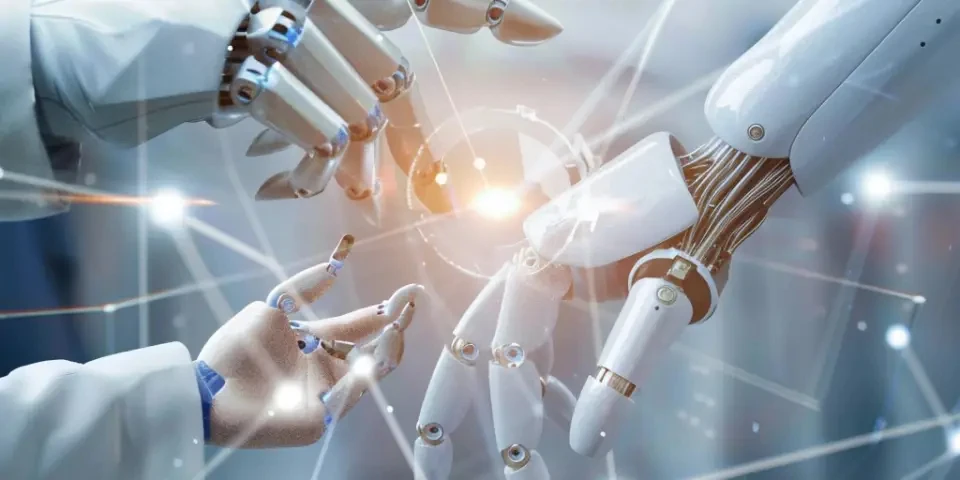How AI is Redefining the Gaming Industry
Artificial Intelligence (AI) has revolutionized various industries, and the gaming industry is no exception. With AI technologies becoming more advanced, game developers are leveraging its capabilities to enhance gameplay, create realistic virtual worlds, and provide personalized experiences for players. In this article, we will explore how AI is redefining the gaming industry in several key areas.
1. Game Design and Development
AI has greatly impacted game design and development processes. Through machine learning algorithms, AI can generate procedural content, such as terrain, levels, and even believable characters, saving developers significant time and effort. Additionally, AI-powered tools can assist in bug detection and optimizing game performance, leading to more polished and immersive experiences.

Furthermore, AI allows for dynamic game environments that adapt and respond to player actions. NPCs (non-playable characters) can utilize AI algorithms to learn and adapt their behavior based on the player's actions, creating more challenging and engaging gameplay.
2. Realistic Graphics and Physics
AI algorithms have pushed the boundaries of graphics and physics in gaming. Machine learning techniques such as neural networks have been used to generate realistic textures, improve rendering processes, and enhance visual effects. This has resulted in stunning and immersive graphics, making virtual worlds feel more lifelike.
Moreover, AI enables more realistic physics simulations, allowing for accurate object interactions, fluid simulations, and realistic animations. With AI-driven physics engines, objects can behave more realistically, enhancing the overall gaming experience.
3. Player Behavior Analysis
AI-powered analytics tools have ushered in a new era of player behavior analysis. By collecting and analyzing vast amounts of data, AI algorithms can identify patterns, preferences, and habits of players. This information helps game developers personalize gameplay experiences, recommend relevant content, and optimize in-game purchases.
Additionally, AI can detect cheating or toxic behavior, enabling developers to take appropriate actions promptly. This ensures a fair and enjoyable gaming environment for all players.
4. Natural Language Processing for Voice Commands
With AI advancements in natural language processing (NLP), voice commands have become a prominent feature in many games. Players can interact with in-game characters, issue commands, or control gameplay elements using voice alone. This technology adds a new level of immersion to gaming experiences and can be integrated with voice assistants like Amazon Alexa and Google Assistant.
5. Dynamic Difficulty Adjustment
AI algorithms can dynamically adjust game difficulty based on the player's skill level. By monitoring player performance, AI can adapt the game's challenges to ensure an engaging experience without becoming too easy or overwhelmingly difficult. This level of adaptability keeps players motivated and invested in the game.
6. Personalized Storylines
AI enables game developers to create personalized storylines tailored to individual players. By analyzing player preferences, behavior, and choices, AI algorithms can generate dynamic narratives that adapt and branch based on player decisions. This level of customization enhances player immersion and replayability.
7. AI-Driven NPCs and Enemy Behavior
AI algorithms are transforming the behavior of NPCs and enemies within games. Through machine learning techniques, NPCs can exhibit more human-like behavior, making interactions with characters more realistic and engaging. Enemies can utilize AI to learn and adapt their strategies, challenging the player and creating more intense gameplay.
8. AI-Powered Virtual Assistants for Gamers
Virtual assistants powered by AI, such as IBM Watson or Amazon's Alexa, are enhancing the gaming experience. These assistants can provide real-time in-game tips, strategies, and tutorials, eliminating the need for external guides or walkthroughs. They can also offer personalized recommendations based on the player's gameplay history and preferences.
FAQs:
Q: Can AI replace human game developers?
A: AI can automate certain aspects of game development, such as content generation and bug detection, but human creativity and expertise are still essential in designing captivating gameplay experiences.
Q: How does AI ensure fair gameplay?
A: AI analytics tools can detect cheating or toxic behavior, allowing developers to take appropriate actions and maintain a fair gaming environment.
Q: Will AI algorithms take away player agency in games?
A: No, AI-driven personalizations and adaptive storylines aim to enhance player agency and provide a more immersive and tailored gaming experience based on individual choices.
References:
1. Johnson, A. (2019). Artificial Intelligence in Video Games: Exploring the Future. Springer.
2. Silverman, B. (2020). AI in Video Games: Toward a More Intelligent Game. IEEE.
3. Tapia, A., et al. (2021). How Artificial Intelligence Can Enhance the Gaming Industry. ACM Transactions on Multimedia Computing, Communications, and Applications.
Explore your companion in WeMate